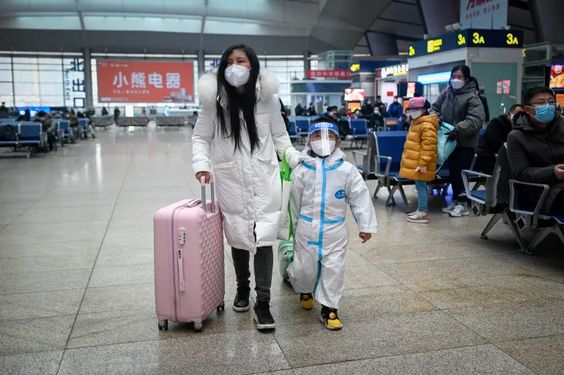World
COVID-19 restrictions on Chinese travellers motivated by bias rather than science?

Are COVID-19 restrictions on Chinese travellers motivated by bias rather than science?
In response to an increase in COVID cases, experts say it is “extremely improbable” that travel restrictions on people from China could help combat the virus. However, other people worry that the restrictions may encourage discriminatory behaviour.
More than a dozen nations have imposed COVID-19 limitations on travellers from China, which has left the Chinese people extremely upset at what some see as a selective application of science.
Travelers from China are subject to a number of requirements from nations like France, Italy, Japan, and the United States, including pre-departure negative tests, on-arrival testing, and fever checks.
Beijing retaliated by stopping short-term visas for South Korean citizens after South Korea announced it was implementing visa restrictions on Chinese nationals.
“Some nations have implemented entrance restrictions that only apply to Chinese tourists. China’s foreign ministry spokesperson Mao Ning stated earlier this month that this lacks a scientific foundation.
READ ALSO: Experts worry about the COVID-19 spike, but the FG rules out limiting visitors from China
Since unexpectedly abandoning its tight “zero-COVID” strategy and lifting travel restrictions, China has seen a sharp increase in COVID cases and fatalities.
The Chinese government indicated that the virus claimed the lives of about 60,000 individuals between December 8 and January 12; however, even that number may be an underestimation of the total death toll.
However, scientists and civil rights organisations have expressed concern about what they perceive to be China-focused COVID limits.
Manjusha Kulkarni, co-founder of the US organisation Stop Asian American Pacific Islander Hate (Stop Asian AAPI Hate), told Al Jazeera, “We are quite concerned about how this new policy would put Asians and Asian Americans in harm’s way.”
“Our prior president (Donald Trump) announced a China travel ban that is identical to the one in place today in 2020, at the start of the pandemic,” Kulkarni said in an email.
Trump’s visa ban and his casual anti-China language contributed to an increase in hate crimes against Asians and Asian-Americans in the US, which “continue to damage our communities to this day,” according to Kulkarni.
Guo, 28, a native of Huainan in the province of Anhui, had initially intended to fly from her birthplace in China back to London via Shanghai on January 28.
Guo explained that because she can’t get an English-language COVID test result in her city, she will have to leave for Shanghai, China’s most populous city, at least two days sooner than planned. The UK now requires a negative test 48 hours prior to departure.
“I now need to find lodging and rebook my flight. I don’t have any family or acquaintances in Shanghai that I can stay with,” she stated.
Guo said the extra travel to Shanghai was “disappointing and honestly inconvenient,” but the change in plans means she will now spend less time with her family throughout the weekend-long Chinese New Year celebration that starts on Sunday.
She said, “I’m quite upset about it.
THE SOURCE IS AL JAZEERA
